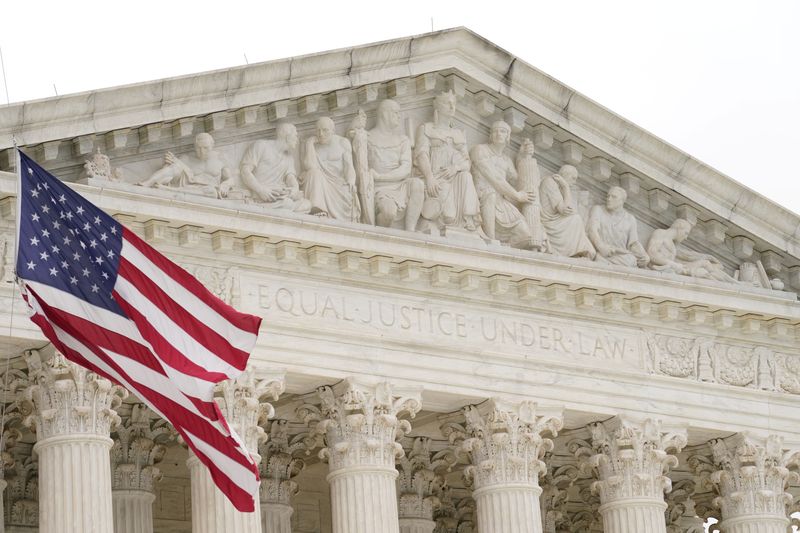By John Kruzel
WASHINGTON (Reuters) – Conservative U.S. Supreme Court Justice Samuel Alito said that Congress lacks the power to regulate the court, in an interview published by the Wall Street Journal on Friday a week after Senate Democrats advanced a bill to impose an ethics code.
The Democratic-controlled Senate Judiciary Committee last week approved the bill, which would mandate a binding code for the court following revelations that some justices – including Alito – had failed to disclose luxury trips funded by wealthy benefactors.
“I know this is a controversial view, but I’m willing to say it,” Alito said in the interview published in the Journal’s opinion section. “No provision in the Constitution gives them the authority to regulate the Supreme Court — period.”
Alito’s view was shared by some Senate Republicans who last week cited the U.S. Constitution’s division of powers among the government’s executive, legislative and judicial branches in opposing the ethics-reform measure. That bill, which cleared the committee on an 11-10 party-line vote, is unlikely to gain the Republican support needed to pass Congress.
Alito also commented on the judicial approaches of some of his colleagues on the court’s 6-3 conservative majority, including Chief Justice John Roberts and Justices Neil Gorsuch and Clarence Thomas.
The court has drawn criticism from liberals and praise from conservatives in its past two terms for sweeping decisions including ending the nationwide right to abortion and banning college affirmative action.
The Journal’s editorial page in June drew criticism for allowing Alito to preemptively try to defend his failure to disclose a 2008 trip to Alaska on a private jet belonging to a billionaire hedge fund manager whose business interests have come before the court.
Details of Alito’s trip were revealed by ProPublica, which also exposed decades-long ties between Thomas and billionaire Republican donor Harlan Crow.
The recent reporting has helped to rally Democrats around a bill by Democratic Senator Sheldon Whitehouse that would impose on the top U.S. judicial body new requirements for financial disclosures and for recusal from cases in which a justice may have a conflict of interest.
Unlike other members of the federal judiciary, the Supreme Court’s nine life-tenured justices have no binding ethics code of conduct, though they are subject to financial disclosure laws. The justices also decide for themselves whether to step aside from cases involving a possible conflict of interest.
(Reporting by John Kruzel, additional reporting by Andrew Chung; Editing by Scott Malone and Alistair Bell)
